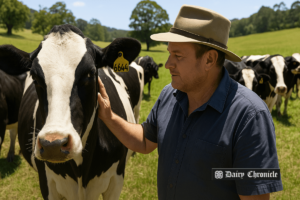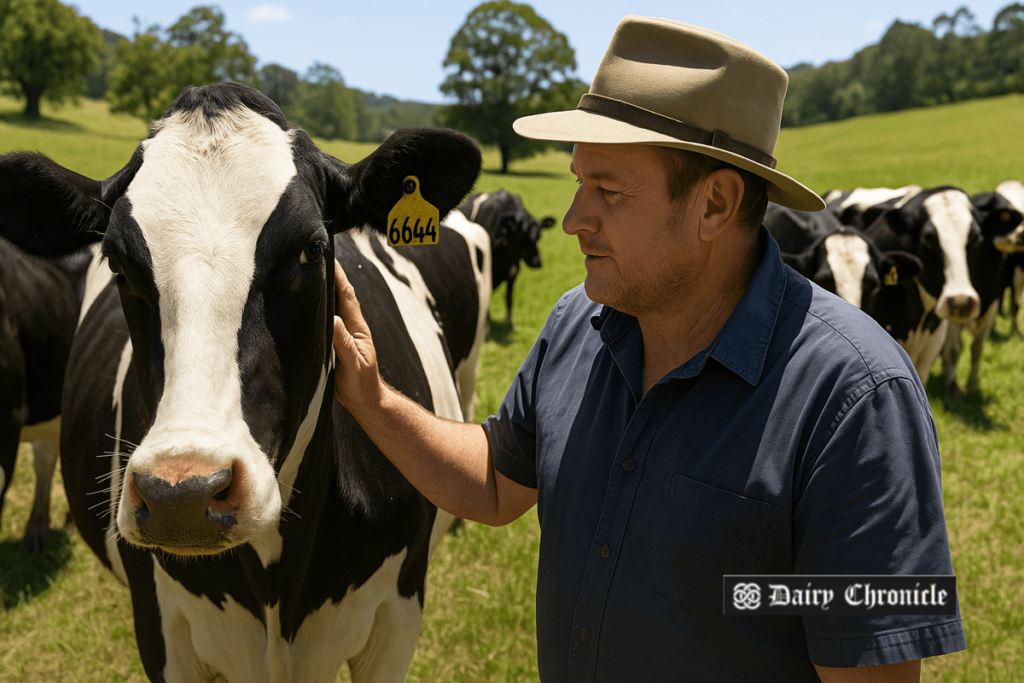In Australia, a groundbreaking genetic index has been developed to help farmers breed heat-tolerant cows, combating the impact of global warming on milk production. This innovation, known as the Heat Tolerance Australian Breeding Value (ABV), is a world-first tool helping farmers like Trevor Parrish in New South Wales improve livestock welfare and ensure milk yields even in extreme weather.
In a pioneering move to tackle the challenges posed by global warming, a world-first genetic tool is helping Australian farmers breed cows that are more tolerant to heat. Developed in Australia, the Heat Tolerance Australian Breeding Value (ABV) has already begun to make a significant impact in regions like New South Wales, where climate extremes often disrupt dairy farming.
The ABV was introduced in 2017 and uses genomic selection to identify animals with a genetic predisposition for heat tolerance. Developed by Melbourne-based scientist Dr. Thuy Nguyen, this tool is designed to improve both the welfare of dairy cows and the productivity of farmers. By using a simple genetic sample from cows, farmers can pinpoint animals with superior heat tolerance, helping them maintain milk production even in scorching weather.
Trevor Parrish, a fourth-generation farmer from the Southern Highlands of New South Wales, was one of the first to embrace the technology. Despite the often sweltering conditions of his farm, which is nestled in the hills of Kangaroo Valley, Mr. Parrish’s herd continues to produce a significant amount of milk thanks to breeding strategies informed by the ABV.
“The year has been hot, humid, and unpredictable, but the ABV is helping me breed cows that handle the heat better, ensuring steady milk production,” said Mr. Parrish.
The ABV tool works by providing farmers with a score, where anything above 100 indicates superior heat tolerance. This allows farmers like Mr. Parrish to select the right bulls to improve the heat resistance of the next generation of cows. Over time, this will help stabilize milk yields, which can drop significantly when cows are unable to cope with extreme temperatures.
The impact of this tool has garnered global attention, with Dairy Australia’s national animal health and welfare lead, Stephanie Bullen, emphasizing its importance. “It’s not just about improving productivity but ensuring the cows’ well-being in extreme weather conditions,” she said.
The ABV tool has already been tested successfully in the U.S., where it was found to work in similar conditions. This has sparked interest from international dairy industries keen to adopt the technology.
As climate change continues to affect weather patterns across the globe, tools like the Heat Tolerance ABV are becoming essential for ensuring the sustainability of dairy farming. Farmers like Mr. Parrish are now better equipped to face the future, helping to protect both their livestock and their livelihoods.

